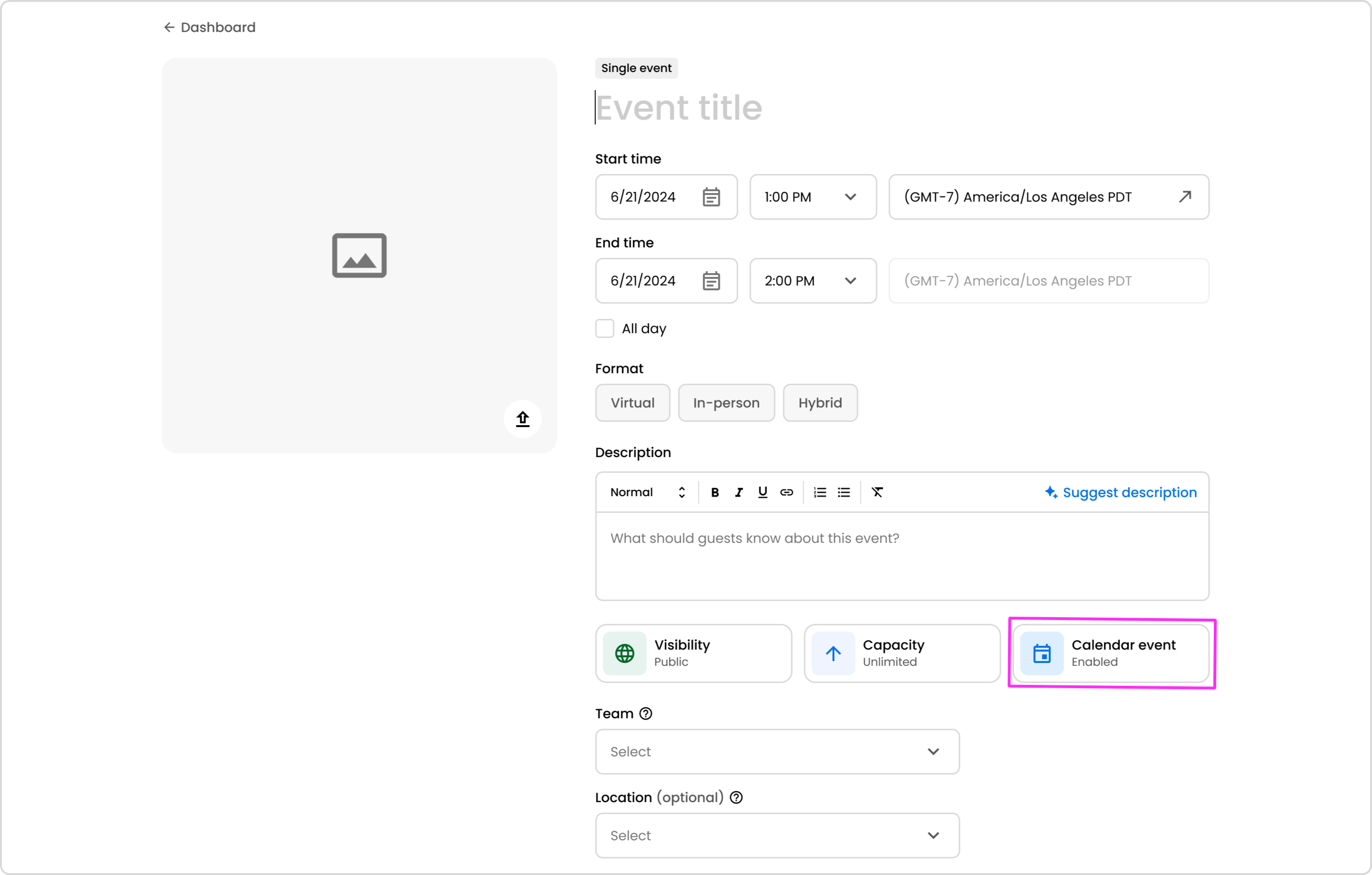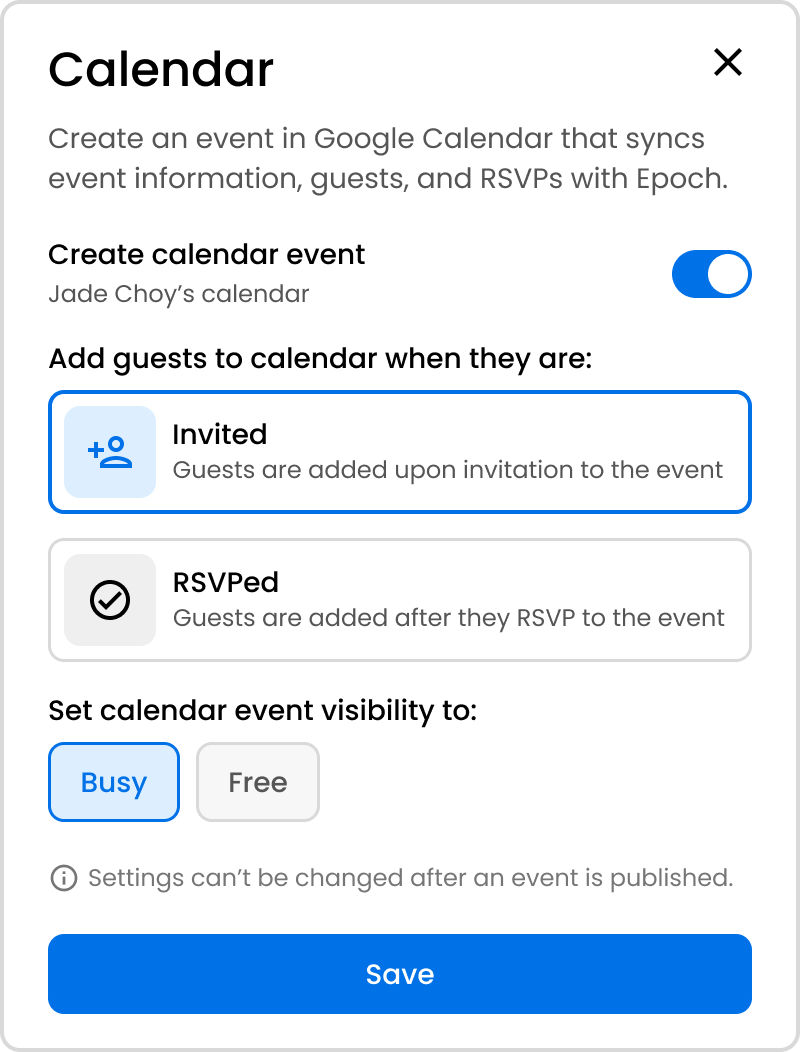
Feb 23, 2026 3:44 PM
You can create a corresponding calendar event for any Epoch event. This calendar event will be automatically synced with its associated Epoch event, providing important data like RSVPs.
Note: Selecting When guests are invited means that guests will be added to the calendar event immediately after being invited. Selecting Only after guests RSVP means that guests will not be added to the calendar until they RSVP with "Yes" or "Maybe".


Note: Selecting When guests are invited means that guests will be added to the calendar event immediately after being invited. Selecting Only after guests RSVP means that guests will not be added to the calendar until they RSVP with "Yes" or "Maybe".

All Epoch information will be synced with calendar. For example, if you change the event location or start time on Epoch, the changes will appear in the calendar event as well. The only calendar information that syncs back to Epoch is the guest list. Guests added to the calendar event directly and everyone's RSVPs will appear in Epoch.
The title is populated from the Epoch event from the web app. If it's a multi-session event, it will show the session title.
The date and time is populated from the Epoch event from the web app. If it's a multi-session event, it will show the session date and time.
The location is populated from the "Place or address" field for in-person events, "Virtual link" field for virtual events, and both for hybrid events. If it's a multi-session event, it will show the session location.
Note that the calendar event can support text that isn't an actual address in the location field. For example, you could put "Meeting Room 3B."
The location field can also display multiple addresses (e.g. separated by a comma), but calendar will only identify the first address as an actual location. We recommend only including 1 address in the location, and if needed, put additional locations in the event description.
The calendar description populates the description text from the Epoch event from the web app. If it's a multi-session event, it will show the session description.
Epoch will also add a link to the event page link and virtual meeting link (if applicable) by default.
We recommend that admins write shorter and more concise descriptions, as there is less space in calendar and it increases the chances of it being fully read by employees.
As employees register on the Epoch web app, Slack, or calendar event, the calendar event updates with the employee's status of Yes, Maybe, and No.


Once there are existing guests in your event, we don't allow changes to creating the calendar events, choosing when guests are added to calendar, and event visibility.
This is because we want to create a consistent experience for guests, while ensuring they are not receiving unnecessary notifications related to the calendar being created and deleted.
Note that there are some limitations with formatting the event description in Epoch:
You are able to edit the calendar event directly to add sub-bullets or remove the paragraph breaks, but note that these will be overridden when any calendar fields are updated on Epoch. This includes the title, description, date and time, location, and event privacy. Changes to the guest list will not affect the description.
If someone RSVPS as maybe, they will be added to the calendar event and marked as Maybe.
Changing the start date or time of an event will reset all guests' statuses to "Pending". For example, if you have 20 guests registered and make a change to the start date, it will be reset to 0 registrations. This is because guests will need to update their RSVP depending on if they are still available to attend the new date and/or time.
Note that this will not remove guests.
Get in touch with our customer experience team. We'll reach out with next steps.
Contact us